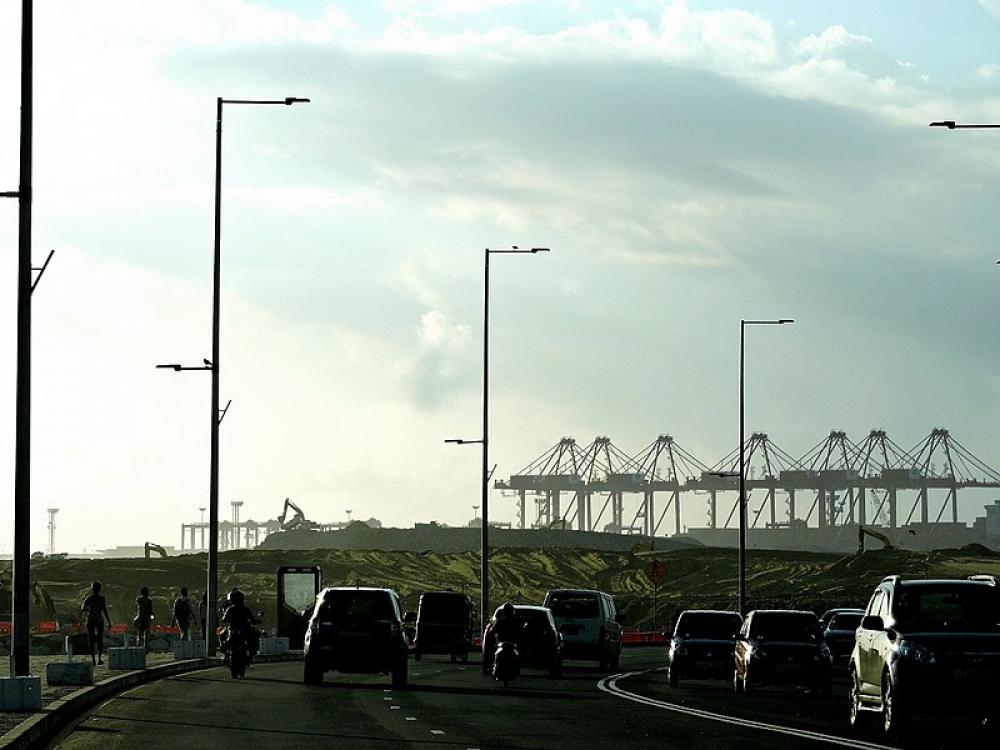Just Earth News | @justearthnews | 19 Feb 2023, 10:45 am Print

File photo by Dinil Samarasinha via image
Colombo: Experts in Sri Lanka are doubting the feasibility of the Port City Colombo (PCC), a vast new Chinese-built reclaimed commercial zone in the capital city, especially at a time when the country witnessed its worst economic crisis.
Recently, PCC unveiled an artificial beach facing the Laccadive Sea, triggering confusing thoughts in the minds of locals and experts about the ultimate gain from the project, with some even claiming it to be a greenwashing to attract international investors.
“The artificial beach is just greenwashing to attract international investors – sustainability is a convenient buzzword,” Priyangi Jayasinghe, a researcher at Colombo’s Munasinghe Institute for Development, told Al Jazeera.
Jayasinghe is one of many local critics who fear that PCC is another Beijing-funded white elephant in the mould of controversial projects.
Critics feel that the PCC, which is being developed on 269 hectares (665 acres) of reclaimed land, is unsustainable and will have negligible benefits for the nation’s ailing economy.
“PCC will make a very minor impact on the Sri Lankan economy. It will be a separate tax-free dreamland when the rest of the country is facing higher taxes to deal with the economic crisis,” Jayasinghe told the news channel.
Locals have even expressed their doubts over the Chinese involvement in the economy of Sri Lanka which has been battling a crisis for the past several months.
People in the Island Nation have been struggling against rising prices of food and spiking inflation since 2022.
“And that over there is China,” a driver of a tuk-tuk motorised trishaw told Al Jazeera, pointing at the huge construction site for PCC while weaving through the congested midday traffic.
“Every time I return to Colombo, the government has sold a bit more of the nation to China,” Prem Velautham, a Sri Lankan living in the UK who recently visited the site, told Al Jazeera.
PCC is not owned by China or a Chinese company but 65 percent of the 178-hectare (440-acre) area of saleable reclaimed land will be held on a 99-year lease by a Chinese majority state-owned company.
“Given Sri Lanka’s role at the epicentre of the ‘debt trap diplomacy’ narrative and the well-documented troubles of the Hambantota seaport, it is not surprising that residents in Colombo or elsewhere are sceptical of flashy projects like this one – they have good reason to be,” Austin Strange, the co-author of Banking on Beijing and an assistant professor of international relations at the University of Hong Kong, told Al Jazeera.
Some environmental activists and citizens question whether authorities have the plan or budget for the significant investment required to accommodate PCC, given Colombo’s over-stressed public infrastructure and the abject state of Sri Lanka’s public finances.
CHEC Port City Colombo has estimated the project will increase demand for water by 39,000 cubic metres per day, equivalent to more than 15 Olympic-sized swimming pools, in a country that experienced severe droughts in 1992 and 2001. The developer has said the increased demand will be met by the state water authority and that it is encouraging its private partners to recycle wastewater, reports the news channel.
- Why is Nissan recalling 640000 vehicles? Check all details
- Microsoft appoints Asha Sharma as Gaming CEO. Who is she?
- Is your screen job about to vanish? Top AI expert warns that the shift has already begun
- Tesla strengthens China presence with AI training centre launch: Reports
- AI blamed for thousands of job cuts as U.S. employers slash 108,000 positions in January





-1763561110.jpg)
